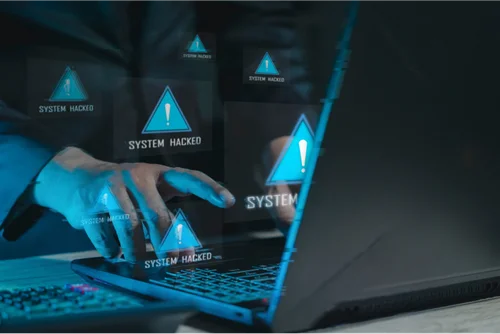One study last year showed that phishing scams struck 45 K-12 districts across the United States in 2022, doubling in 2023 to 108 school districts. Many were successful, resulting in both students and faculty suffering attacks on their personal accounts—from bank accounts to streaming services—as a result of stolen information.
Here are some of the ways a phishing attack can affect a school:
- Compromised Data Security: Phishing attacks often aim to steal sensitive information such as student records, financial data, and personal information of staff and students. A successful attack can lead to a breach of confidential information, which can be misused for identity theft or other criminal purposes.
- Disruption of Operations: If phishing leads to malware infection or compromises IT systems, it can disrupt school operations. This might affect online learning platforms, administrative systems, or communication channels, leading to extended downtime and delays in learning and other school activities.
- Financial Losses: Schools can suffer huge financial losses if the phishing scam involves fraudulent transactions, unauthorized access to accounts, or ransom demands following a ransomware attack. The impact can severely strain the school's budget and resources.
- Legal and Compliance Issues: Schools are often subject to data protection regulations (e.g., the GDPR in Europe or FERPA in the United States) that require safeguarding student information. A data breach from phishing could lead to legal liabilities, fines, or penalties for non-compliance—and that’s on top of the other financial losses that can stem from an attack.
- Loss of Trust: Not every consequence of a phishing attack is strictly financial or operational. A security breach can damage the school's reputation and diminish trust among students, parents, and staff. It may even affect enrollment rates and relationships with stakeholders if they view the school as unable to protect sensitive information.
How to Prevent Phishing Scams in Education
Here are the most effective ways school districts can combat and catch threats like phishing attempts and guard their schools against determined scammers:
- Learn How to Catch a Phish: Teach staff and students how to spot the tell-tale signs of phishing attempts, such as grammar mistakes, a strange sense of urgency, abnormal company URLs, and weird vibes in general. Programs like Huntress Security Awareness Training help educate faculty and staff on the dangers of phishing scams, ways to recognize them, and actions to take when encountering one, plus updated information on new, emerging threats.
- Use Password Managers: Unlike storing passwords in documents or digital notes that can be easily compromised, password managers encrypt your credentials, making them accessible only to you. As an added bonus, they also simplify the process of logging into websites.
- Change Passwords Regularly: By creating a new password periodically, potential scammers are far less likely to guess or hack your authentication credentials.
- Use Spam Filters: Cybersecurity platforms often provide filters that keep spam emails—the most popular method of phishing—out of your inbox.
- Update Regularly: Update phone and computer operating systems as they're released. These updates frequently contain patches that help prevent phishing and other cyberattacks.
- Threat Detection and Response: Managed security platforms like Huntress continuously monitor for malicious activity and provide immediate response to threats, alerting schools when action needs to be taken on their end. If anything suspicious is detected, our team will investigate, contain, and eliminate the threat, followed by a guided cleanup and recovery process, if needed.






